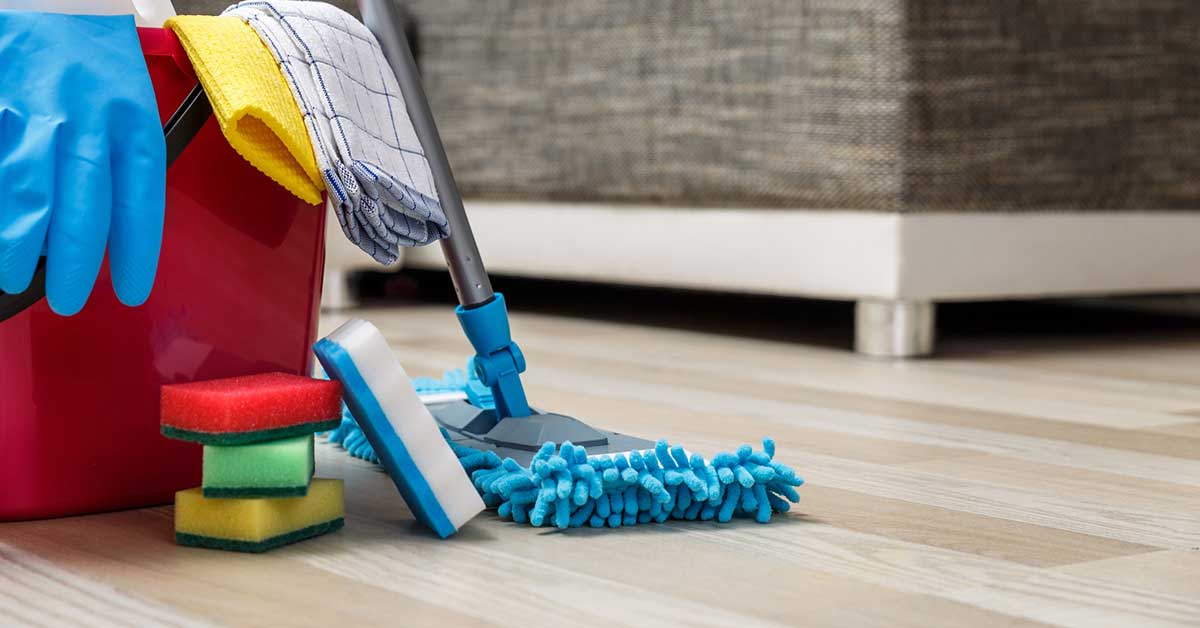Cleaning is an essential part of maintaining a healthy and comfortable living environment. However, not everyone has the time, energy, or inclination to clean their homes thoroughly. This is where professional house cleaning services come in. If you're considering starting a house cleaning business or working as a freelancer, one of the most important things to consider is how much to charge for your services. In this article, we'll provide you with a comprehensive guide on how to determine your pricing strategy.
Factors that Affect House Cleaning Prices
Size and Layout of the Home:
Larger homes typically require more time and effort to clean, which will result in higher prices. Homes with multiple levels, intricate layouts, or hard-to-reach areas may also cost more to clean.
Frequency of Cleaning:
Clients who request more frequent cleanings may be eligible for discounts.
Additional Services Requested:
Homes that require deep cleaning services, such as after a renovation or move-in, may require additional fees.
Location of Home:

Hourly vs. Flat-Rate Pricing: Which One is Better?
Hourly Pricing:
- Hourly pricing can be more flexible and may result in higher profits if you can work efficiently.
- Hourly pricing may lead to uncertainty about the final cost of the cleaning, which can cause issues with clients.

Flat-Rate Pricing:
- Flat-rate pricing is often preferred by clients who want to know exactly what they'll be paying upfront.
- Flat-rate pricing may result in lower profits if the job takes longer than expected or if the client requires additional services.
Tips for Setting Your Cleaning Service Prices
Conduct Market Research:
Before setting your prices, research what other cleaning services in your area are charging. This will give you an idea of what the market rate is and help you stay competitive. You can conduct market research by browsing the websites of other cleaning services, calling to inquire about their prices, or checking online directories.
Calculate Your Costs:
Calculate all of your costs, including supplies, equipment, transportation, insurance, and labor. This will give you a baseline for how much you need to charge to break even. To calculate your labor costs, determine how much you want to pay yourself and any employees and factor in taxes and benefits.
Determine Your Profit Margins:
Decide on a target profit margin for your business. This is the amount of profit you want to make on top of your costs. A typical profit margin for a cleaning service is around 20%, but this can vary depending on your business goals and expenses. Consider using online tools like software for maid service to help reduce costs.
Test Your Prices:
Test your prices by offering discounts or promotions and tracking how many customers take advantage of them. You can also ask for feedback from customers to determine whether your prices are too high or too low.
Be Transparent:
Be transparent with your pricing and communicate clearly with your clients about what's included in your services. This will help you avoid confusion and build trust with your customers.
Consider Your Target Market:
Consider your target market when setting your prices. If you're targeting high-end clients, you may be able to charge more for your services. However, if you're targeting budget-conscious clients, you may need to adjust your prices accordingly.
Be Flexible:
Be willing to adjust your prices if necessary. If you're not getting enough business, you may need to lower your prices to attract more customers. On the other hand, if you're overwhelmed with business, you may need to raise your prices to manage your workload and maintain quality service.
By following these tips, you can set prices that are fair for both you and your customers and ensure the success of your cleaning service business.
Conclusion
Determining how much to charge for house cleaning services can be a daunting task, but it's essential to ensure that you're fairly compensated for your time and effort. By taking into account factors like the size and layout of the home, frequency of cleaning, and level of cleaning required, you can determine your pricing strategy. Whether you choose hourly or flat-rate pricing, it's important to be transparent with your clients about your costs and any additional fees. With this guide, you'll be well-equipped to set your cleaning service prices and succeed in the competitive house cleaning market.
FAQs for House Cleaning Prices
How much should I charge for a one-time cleaning? One-time cleanings typically cost more than recurring cleanings since they require more effort and time. You can charge anywhere from $100 to $400 or more, depending on the size of the home and the level of cleaning required.
How much should I charge for a recurring cleaning? Recurring cleanings typically cost less than one-time cleanings since they require less effort and time. You can charge anywhere from $75 to $200 per visit, depending on the size of the home and the frequency of the cleanings.
Do I need to charge extra for deep cleaning services? Yes, deep cleaning services require more time, effort, and specialized equipment, so it's reasonable to charge extra fees. You can charge anywhere from $50 to $200 per hour, depending on the level of cleaning required.
How do I handle pricing for additional services like laundry or window cleaning? You can charge extra fees for additional services based on the time and materials required. For example, you can charge $10 to $20 for laundry services or $5 to $10 per window for window cleaning services.
How do I adjust my prices for clients with larger homes or more frequent cleaning needs? You can offer volume discounts for clients with larger homes or more frequent cleaning needs. For example, you can offer a 10% discount for clients who book weekly or bi-weekly cleanings or offer a package deal for clients who book multiple services at once.

